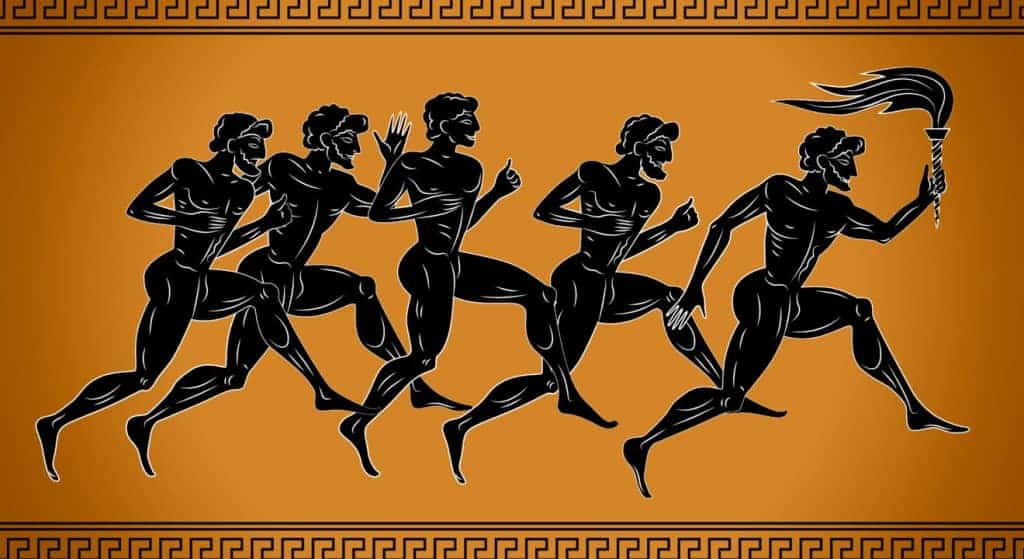History and traditions of the Olympic Games
The Olympic Games were born in Olympia nearly 3,000 years ago. In 776 B. C., according to tradition, the Olympic competitions were first a religious festival, but also the occasion for diplomatic negotiations and treaty signatures. They thus had a religious, but also an economic and political role.
The Olympic competitions are named after the sanctuary of Olympia, a sanctuary that depended on the small city of Pisa. These meetings between the Greeks were held every four years (the four years between each summer edition was called the Olympiad), women were forbidden; only the Greeks could theoretically participate.
First of all, it is a religious manifestation: the first days of the J-O were devoted solely to religion, processions, prayers, sacrifices, and libations were practiced.

The pageants paid homage to the deities
But also a political and economic role: the morning of the third day has celebrated the sacrifice of a hundred oxen (hecatomb) followed by a banquet in the magistrates ‘ house where there were judges, priests, ambassadors, and athletes.
On the first day, the athletes had to take an oath to respect the competition rules.
The second day started the chariot races at the Hippodrome. Then there were the horse races and the five pentathlon events (5 disciplines: discus throw, javelin throw, long jump, race, and wrestling).
On the afternoon of the third day, the 12-to 18-year-old sport event took place: boxing, pancreas, wrestling… and this ended in a 400-meter race by Warriors in battle dress.
One month before the start of the Olympic Games and one month after they were completed, there were good times to promise athletes that they would join Olympia without any problems.
The Greek athlete was wealthy, envied and powerful. Many victors received citizenship from several cities where they had won. Some even began an impressive political career.
Tradition
The Olympic motto is “Citius, Altius, Fortius” from the Latin meaning ” faster, higher, stronger “.
The Olympic flame originated in antiquity and burned continuously during the period of the Games.
The Olympic flag was invented by Pierre de Coubertin. It consists of 5 circles that intertwine on a white background. The five circles represent the five continents.
The Olympic anthem appeared at the first games of Athens in 1896; several hymns were then written. But in 1958 the IOC decided to give way to a single anthem, it would be considered as the official anthem, it was the first anthem appeared in 1896 and written by Spyros Samaras (music) and Kostis Palamàs (lyrics). At the start of the Games, athletes and referees must take the Olympic oath. This one was written by Pierre de Coubertin : “on behalf of all the competitors, I promise that we will take part in these Olympic Games by respecting and following the rules that govern them, by committing ourselves to a sport without doping and without drugs, in a chivalrous spirit, for the glory of sport and the honor of our teams”.
